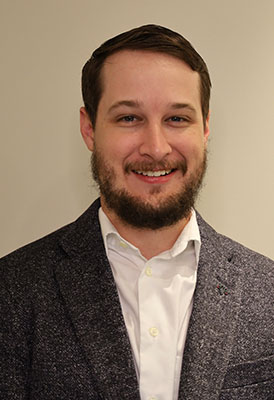Postdoctoral researchers create opportunities for growth at Kennesaw State

KENNESAW, Ga. (May 21, 2021) — Kennesaw State University is building its research muscle through the addition of postdoctoral researchers — non-faculty staff who work to advance the institution’s scientific investigation in a wide range of disciplines.
Since 2020, Kennesaw State has added 10 postdoctoral researchers across five colleges, including several postdoctoral researchers who are the first for the departments and colleges they serve. It’s a natural part of KSU’s growth as a research university, according to Bill Diong, associate vice president for research.
These researchers play a significant role in Kennesaw State’s overall research strategy. They carry out research projects, contribute to research papers and grant proposals, and are vital in facilitating research lab work for undergraduate and graduate students, Diong explained. Postdoctoral work is a common step for aspiring researchers to continue their training, while also gaining the necessary research experience for thriving in their future academic or industry careers.
“While KSU continues to pursue additional Ph.D. programs to aid its quest to become one of the best R2 institutions in the country, postdoctoral researchers play an extremely valuable role in supporting our students, too,” said Diong. “In addition to research, they mentor undergraduate and graduate research students and teach classes which afford opportunities for bringing inspirational, state-of-the-art ideas into our classrooms.”
Exploring health disparities
Tyler Collette is the first postdoctoral researcher in the Norman J. Radow College of Humanities and Social Sciences. He works alongside Evelina Sterling, director of research development and strategic initiatives in the Office of Research and associate professor of sociology. Collette, who earned a Ph.D. in psychology at the University of Texas, is writing grant proposals, collecting and analyzing data, and providing assistance to other KSU researchers with their qualitative and statistical analysis needs.
One of the grants Collette is working on focuses on designing and testing a peer-led, self-management program that will help low-income Black men manage chronic health conditions and live a healthier life. Collette said that he and Sterling are identifying health disparities within this demographic as they aim to create a “culturally informed program that will help individuals working with chronic illnesses.”
Although most of his work is behind-the-scenes, Collette happily dubs himself “the nerd behind the computer” and says that Kennesaw State’s many resources and friendly staff make the entire process an enjoyable one. Ultimately, Collette says that he would like to develop a “multi-disciplinary, highly collaborative group of people that is focused on building on human strengths.” He said he is certain that this team will develop interventions that can help people to persevere during tough times.
-- written by Jhordan John











